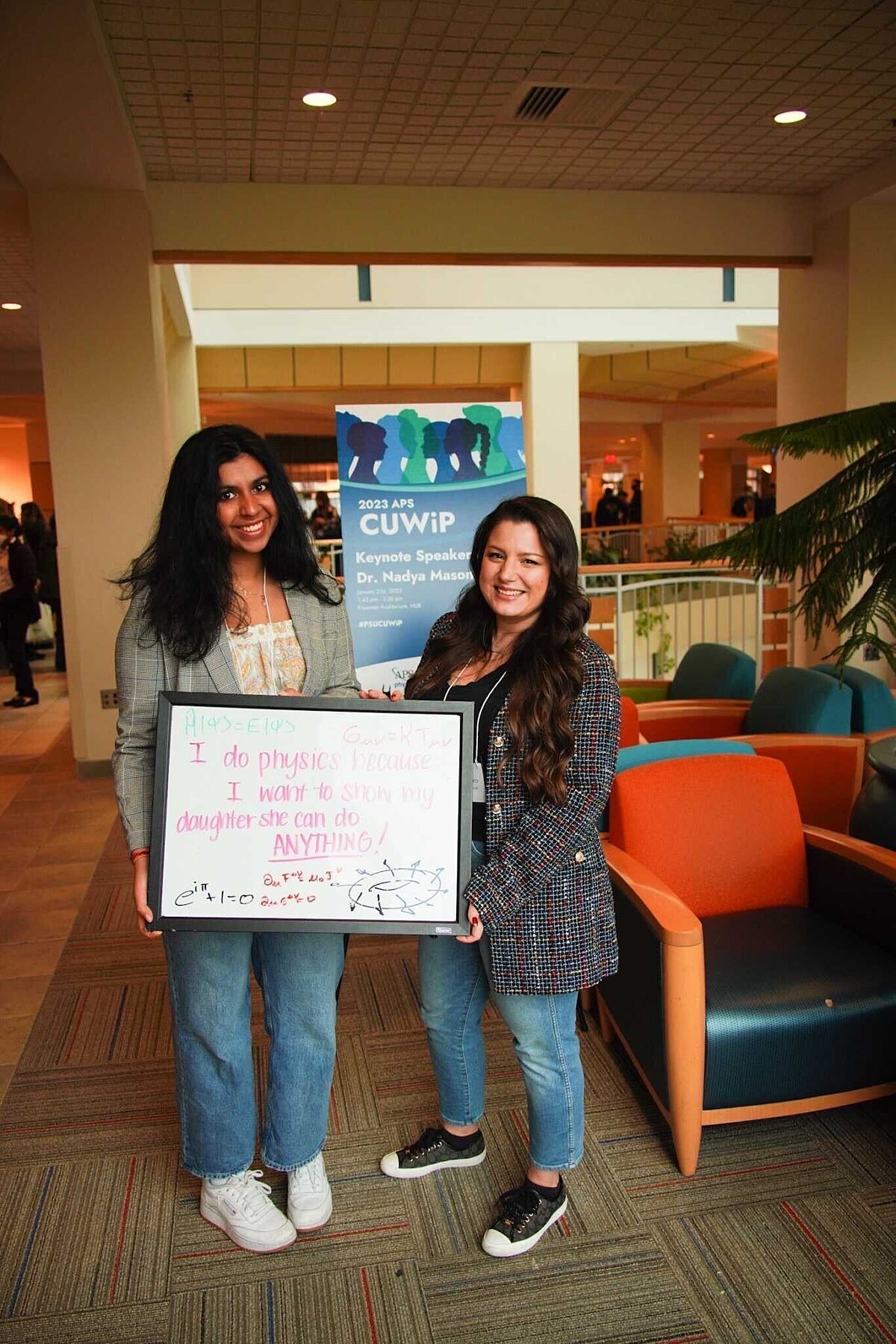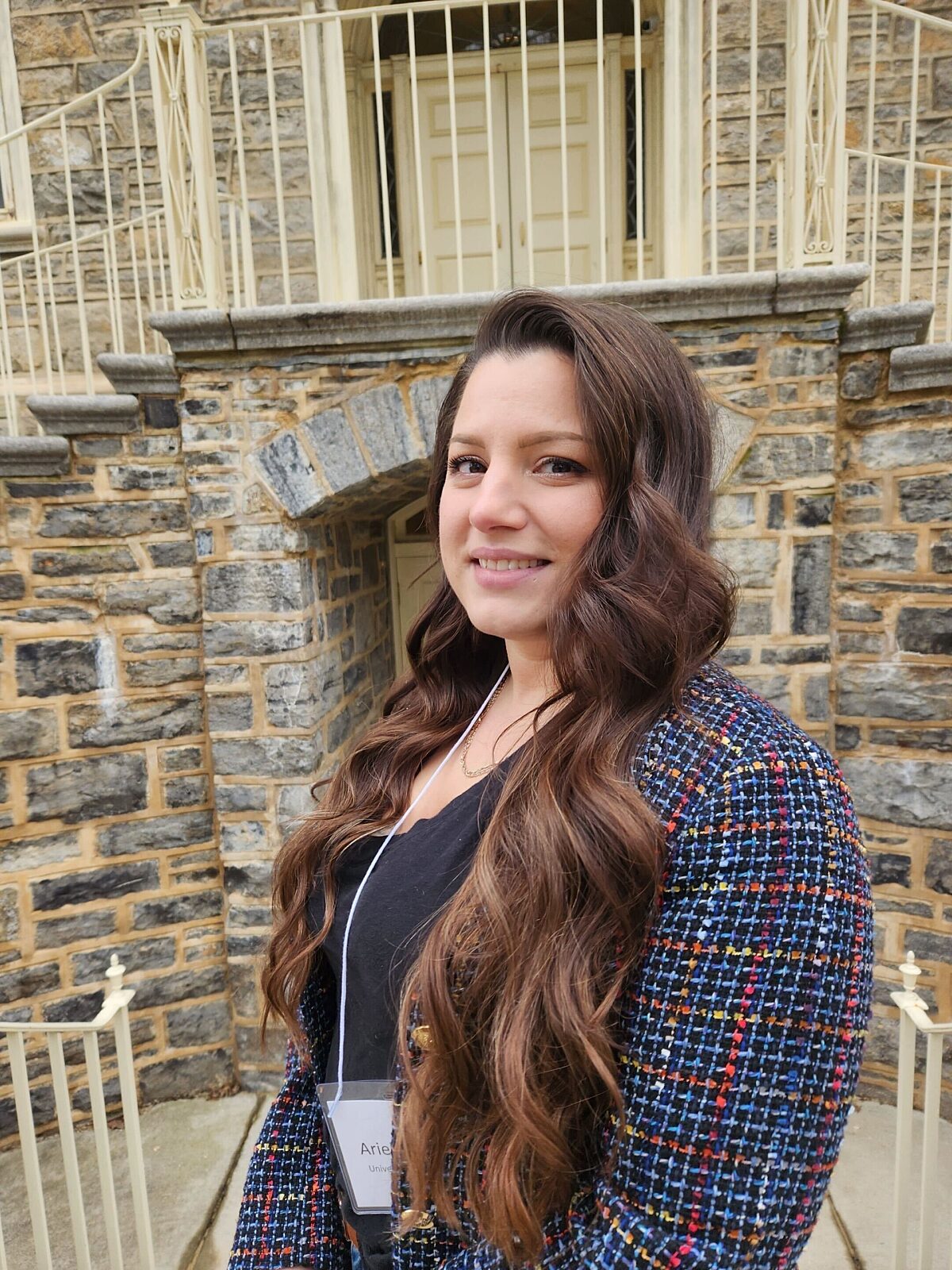The Planetary Society • Jun 22, 2023
Marrying the arts and science in space
An interview with Zed Factor Fellow Ariel Barreiro
For a third year, The Planetary Society is partnering with the Zed Factor Fellowship, a program that empowers and engages aspiring aerospace professionals from underrepresented backgrounds through hands-on, practical experiences. This year we are proud to host Ariel Barreiro, a recent graduate of the University of Pittsburgh whose goal is to work in space science communication.
Rae Paoletta, The Planetary Society’s Director of Content and Engagement who will be working closely with Ariel over the next three months, spoke with her about her passion for space, what motivates her, and what she hopes she’ll get for her fellowship experiences.
This interview transcript has been edited for length and clarity.
Rae Paoletta: Congratulations, and welcome to the team! My first question has to be, when were you first bitten by the space bug?
Ariel Barreiro: The space bug bit me as a child for sure, with sci-fi especially. But then when I was 19 or 20 and I was working at Universal Studios in Orlando, my friends and I were all just looking at the night sky and talking about wormholes. And I just thought, "I’ve got to figure this out. I need to know more."
RP: Tell me a bit more about your interest in sci-fi. How did that start?
AB: My dad's a comic book artist and a painter. Growing up, he and my mom were huge Trekkies. My brother was obsessed with “Star Wars.” We fought over whether we would watch “Gladiator” or “Star Wars” all the time. So I feel like my love of sci-fi was always around. I didn't even really notice that passion transitioning into space, because space was just always around.
RP: Did you know you wanted to be a journalist before pursuing science or vice versa? What was the order there?
AB: I guess it was science first. But growing up, I was always a writer. I wrote stories that were probably more fantasy, I guess, than sci-fi. But I always wanted to try to create another world, like Tolkien. And then journalism just started to make sense as I got older, because I'm always asking questions. I always want to know more, to know about everybody and what they're doing, and why they're doing it. I love science, and I love journalism, so I figured, “Let's get a marriage going here.”
RP: Where do you find the inspiration for your stories?
AB: I think I've fallen into them. In college, if I had a class I found really interesting then I would try to figure out how it related to space. In a roundabout way, you can relate almost anything to space and the Universe.
RP: You were reverse-engineering what you learned and bringing it back to space.
AB: Yes.
RP: Very cool. So how did you get involved in Zed Factor?
AB: By chance. Something about it came through my inbox just as I was thinking, "God, what am I going to do when I graduate?" After being in astronomy for so long, everything I could get into was geared toward research. And I knew what that research looked like, and that I didn’t want to do it. So when the Zed Factor opportunity popped up saying they were looking for communicators, I took a shot in the dark. I shared some articles I'd written, and they thought they were great and that an organization might want to pick me up.

RP: It sounds like to me you’ve got a ton of passion for science, space, all that good stuff. But that's really just the tip of the iceberg when it comes to your résumé. You're also a jazz singer, right?
AB: Yeah.
RP: When did you start singing professionally?
AB: Two years ago. I went to a ton of different schools growing up, including CAPA in Pittsburgh. It’s a creative and performing arts high school that you audition for, and I auditioned as a vocal major. I went there my freshman year and got a lot of vocal training there from classically and operatically trained singers. But then I moved again and I ended up in a different school. But it just was always with me from then on.
RP: What interests you in us, The Planetary Society?
AB: I like the outreach aspect. It feels very grassroots to me. And you all really care about the mission statement. That’s not always the case. I like that you focus on education for everybody and this idea that anybody can be a scientist. And that's been my feeling going through this too. I think for kids that grow up in the inner city that go through what we go through, it's really easy to think that you're not anything. And I don't think that's true. It’s about being able to let more people know and feel inspired that you can do something great too.
RP: Our motto is “Space is for everybody.”
AB: Right. I love that. I feel that in my soul.
RP: What skills are you hoping to hone this summer with us during your fellowship?
AB: Well, I'd love to become a better journalist, definitely. I also think I can learn a lot about leading with kindness from this team. I've just noticed that in the way that you all interact with each other. You all really care about each other. I think that that's something I would definitely love to carry with me through my career.
RP: I'm going to paraphrase a question here from our CEO Bill Nye. It’s something that he asked me when I first started at the Society and I want to ask it to you now. When you think of space, what's the first word that comes to mind and why?
AB: Vast, because it is. It’s really big. We’re all here and so the Earth feels really big when you’re a human. But then the Earth is practically nothing on the scale of the Universe. So yeah, it’s just really, overwhelmingly big.
RP: How does that vastness make you feel?
AB: Hopeful, for whatever reason. Yeah.
RP: It's funny. That was my answer to the question.
AB: Really?
RP: Yeah, very interesting. So obviously, this summer we'll do a ton of journalism together. We'll get you all caught up there. But I want you to envision yourself in 10 or 20 years from now, or maybe when you win your first Pulitzer — what impact do you want to leave on this industry?
AB: That more people could imagine themselves being part of it. I think some people feel discouraged from getting involved in space if they aren’t scientists. But writing and the arts are part of our humanity. And that's why I think the arts and space really go hand in hand.
The Time is Now.
As a Planetary Defender, you’re part of our mission to decrease the risk of Earth being hit by an asteroid or comet.
Donate Today

 Explore Worlds
Explore Worlds Find Life
Find Life Defend Earth
Defend Earth


